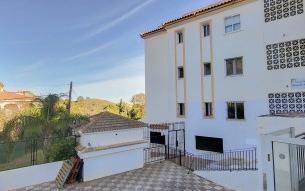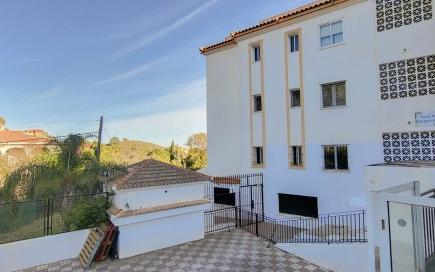
If you own a holiday home in Spain that you only use for part of the year, then you may wish that you property could work for you and help to generate an income. This is particularly true in the current economic climate, with interest rates and the cost of living rising at the same time as inflation. But the good news is that you can use your holiday home in Spain as a source of income, without having to rent it out full time. This means that you can still benefit from using your property for regular holidays and breaks when it suits you. Here’s how you can make money from renting out your Spanish property during low season:
When Is Low Season in Spain?
The most popular, and expensive, time for tourists to visit Spain is during the school holidays, particularly the summer holidays when the temperatures in the country are at their highest. By contrast, the winter months are traditionally considered to be low season in Spain, because the weather is slightly cooler, and children are in school. Many second Spanish homeowners also traditional choose to use or visit their Spanish properties during the most popular holiday season, leaving their property vacant during the low season. But the good news is that it is possible to rent out your Spanish property during the winter and make a profit from it.
Why Rent Out Your Property in the Winter?
The main and most obvious reason to consider renting your property in the short or medium term during the winter months is that this will generate an income for you. Whilst rental incomes during the winter months are slightly lower than in the summer months, they can still be beneficial and will help to cover the costs of maintaining your Spanish home. But this isn’t the only benefit: you may also find that it is safer to rent your property rather than leaving it vacant and at risk of burglary or occupation by squatters. The threat of squatters can be a huge problem in Spain, particularly in areas which large volumes of holiday homes. And once your property has been occupied by squatters, it is a lengthy and expensive process to legally remove them. A property that is regularly occupied is less likely to be targeted by squatters.
Other benefits of renting out your property on a short to medium term basis include the ease with which you can find tenants, no matter what the time of year. This is true in all locations, especially coastal resorts which boast year-round favourable climates that can be appealing to visitors from Northern Europe that are looking to escape the low temperatures, and accompanying high heating bills, of their home country. And you can still use your Spanish property whenever you want to! Letting your home on a short to medium term basis means you aren’t locked into a long-term contract, and can simply not let your property for any periods where you wish to use it yourself.
Is it Legal to Let My Spanish Home?
It is perfectly legal to let your Spanish second home when you are not using it, but only if you secure a tourist licence. According to law firm Advisors Costa Blanca, a tourist licence is compulsory in almost all Spanish regions for tourists or for short terms rentals, which is considered less than 3 months. This will be tricky in some regions: in Barcelona, for example, there are already so many short-term rentals that the council will no longer issue these. Otherwise, you should contact your local Town Hall to obtain a tourist licence for your area.
If you can’t secure a tourist licence, then you can still let your property, but this would have to be on a medium term rather than a short-term basis. You can let a property for a period of over three months without a tourist licence; these types of lets often appeal to remote workers, digital nomads, or snowbirds escaping the bad weather in their home country.
What Are the Disadvantages of Letting My Spanish Home in the Short Term?
Whilst there are many advantages of letting your second home in Spain, there are also some disadvantages. Firstly, you run the risk of securing difficult or problematic tenants: they may attract noise complaints or fail to pay their rent on time. You can minimise this risk by working with a property management agency who can vet potential tenants for you. Secondly, you may experience damage to your property, as increased use will lead to increased wear and tear. This means you may need to complete occasional maintenance and repair. You can mitigate this risk by asking all tenants for a security deposit and securing appropriate home insurance.
Finally, don’t forget that if you rent out your second home in Spain, you will be obliged to pay tax on your income, even if you aren’t a Spanish resident. This IRNR (Non-resident Income Tax) is 19 percent on net income for EU residents and 24 percent for non-EU residents. You may need the help of an experienced legal professional to navigate the complicated world of the Spanish tax system.
Are you thinking of relocating to the Costa del Sol? Perhaps you’d like to live and work in the year-round sunshine? Why not get in touch to see how we could help you? Our dedicated team of property experts are committed to helping our customers find the Spanish property of their dreams.

 English
English Español
Español Deutsch
Deutsch Français
Français Svenska
Svenska Nederlands
Nederlands Italiano
Italiano Norsk
Norsk Русский
Русский


































